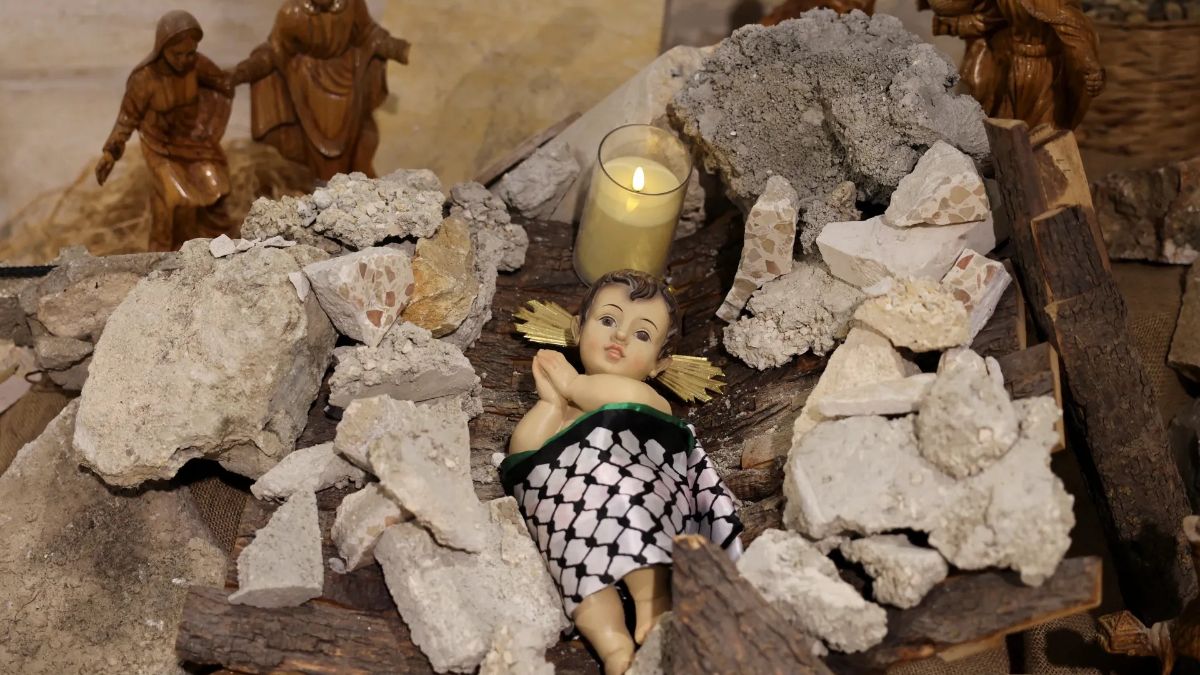Gospel of Rejects
I thank you that you have answered me and have become my salvation. The stone that the builders rejected has become the chief cornerstone. This is the Lord's doing; it is marvelous in our eyes.
Psalm 118:21-23
April 11, 2014, Words By: Scott Dewey, Image By: Palm Sunday 11 by Waiting For The Word
The disciples went and did as Jesus had directed them; they brought the donkey and the colt, and put their cloaks on them, and he sat on them. A very large crowd spread their cloaks on the road, and others cut branches from the trees and spread them on the road. The crowds that went ahead of him and that followed were shouting, “Hosanna to the Son of David! Blessed is the one who comes in the name of the Lord! Hosanna in the highest heaven!”
–Matthew 21:6-9
We select and reject, every minute. I am selecting and rejecting words as I type. I pay attention to this task and push others away. We sift and sort by the second and the hour and the year, consciously or not. You filtered a hundred bits of data in the moment it took to click on this email or click away.
In this most essential human process of sorting there are, obviously, rejects.
Scripture abounds with rejects, which is unremarkable in itself. The world abounds with scrap heaps also, which we often do our best to ignore. If the scraps prove hard to overlook, we push them out of sight more forcefully. If they won’t be pushed, they may need to be crushed.
What bears remarking is how rejected scraps in Scripture find their ways to the center. This image recurs: the discarded stone becomes the chief cornerstone. The castoff rock is strangely employed as the most important structural element – either to square off the building or as the capstone of an arch. This week’s lectionary Psalm (for Palm Sunday) depicts an unlikely king of ancient Judah expressing incredulous joy after an even more unlikely escape from military defeat and death. The lyric of the cornerstone becomes the chant of the victory parade in Jerusalem. The language is later picked up by Jesus about himself (Matthew 21:42; Mark 12:10; Luke 20:17) as the one both rejected and chosen.
The stories of Jesus double down on this theme of castoffs. He tells stories of a lost sheep, a lost coin, a lost son. The gospel writers have him with rejected, overlooked, and even crushed people – proclaiming the realm of God to be among them. Nicodemus, one of the rare admirers with actual respectability, snuck in to see Jesus by cover of night.
Ok, but we builders know what we are doing. We are adept at selecting and rejecting to best effect. We construct our personas and societies and religion from the bright and beautiful as well as we can, with what is at hand. We can at least see when things are trending, lay palm branches in the road, and shout hosanna. We hitch our fortunes to what is winning and celebrate incredulously down the home stretch. As of course we should! Those were giddy days of acclaim in Jerusalem – both for David, and a millennium later for “the Son of David.
There is no mention that Jesus protested the fanfare, such as it was. But in a very short time, all that was overlooked in the jubilation would be bluntly revealed. The donkey, for starters, instead of a war horse. Within a week, desolation and death. This too is the “Lord’s doing,” the mercy, the marvel: precisely that after all shatterings, there is no shard so remotely cast off that it will not be reclaimed. Even death.
This gospel of rejects is the “way of salvation” hinted from the early pages of Scripture and revealed fully in Jesus. It’s at work in the world and in us. In our busy-ness building, are we paying attention?
Peace,
Scott Dewey
The Street Psalms Community



